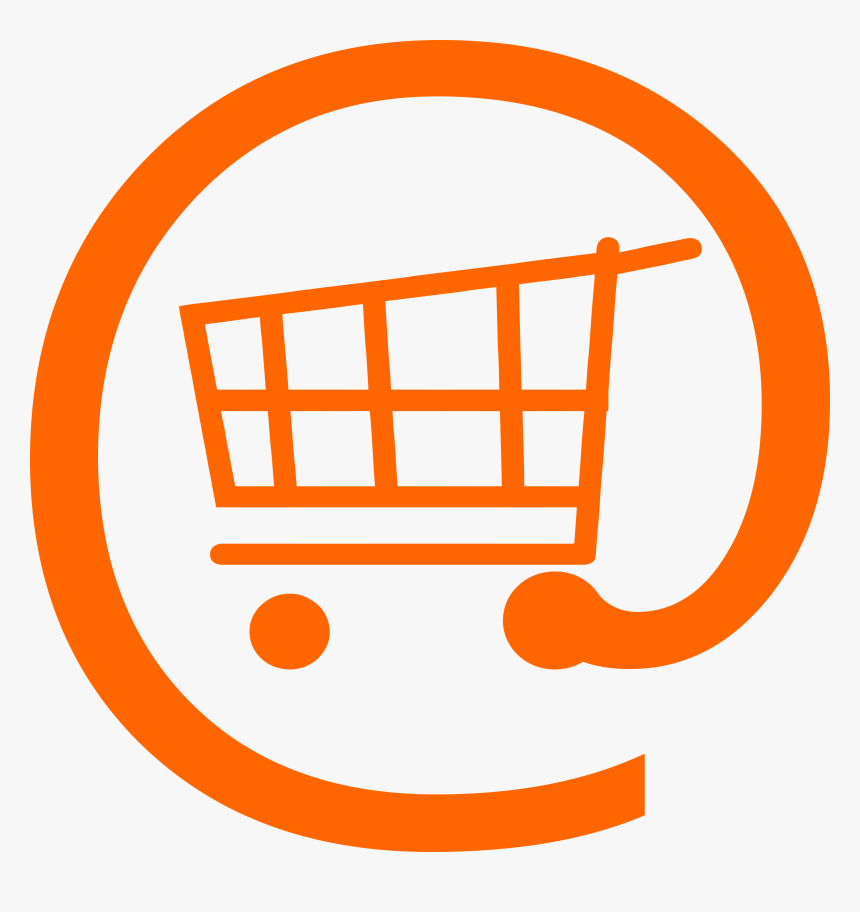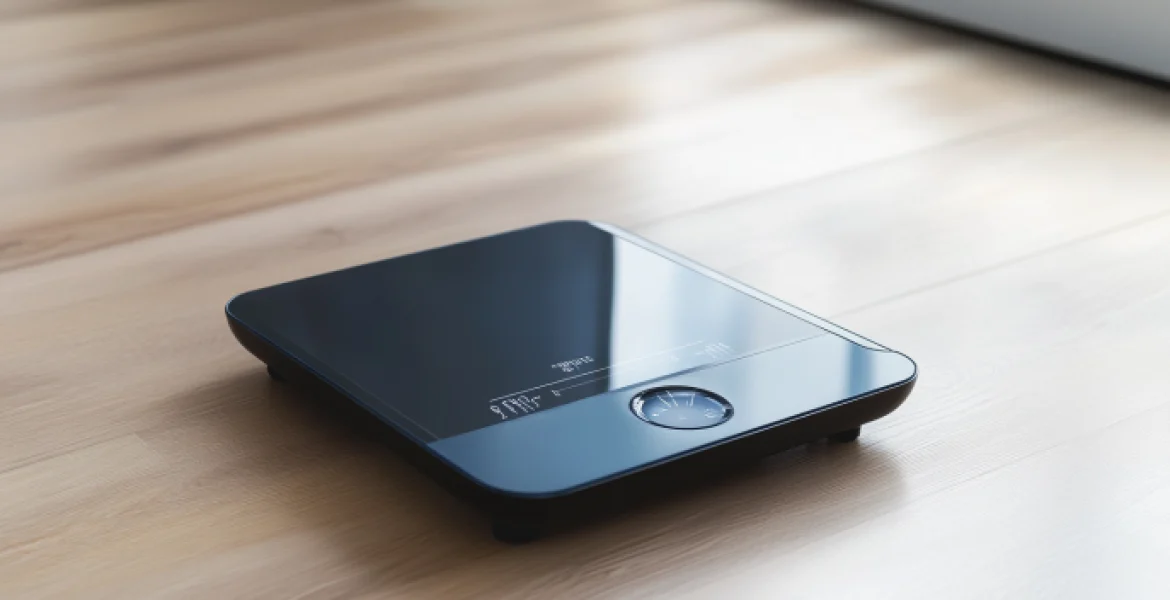
Smart Weigh Digital Heavy Duty Shipping and Postal Scale with Durable Stainless Steel Large Platform 440 lbs Capacity x 6 oz Readability
- Smart Design: Sleek, wide platform holds large packages while long extendable cord allows user to read package weight easily no matter how big the item.

Smart Weigh 5 Kg Tare Function Tempered Glass Platform Bench Scale
- High-Quality Bench Scale: Features a robust tempered glass platform designed for durability and daily use

Smart Weigh High Precision 20 x 0.001g Jewelry Digital Gem Scale
- Weighs in various measurements including g, oz, ct, ozt, dwt, and gn for versatile use

Smart Weigh High-Precision Milligram Digital Scale, 50 x 0.01g, Black, SW-GEM50
- A beautifully designed Milligram Digital Scale that can accurately weigh finer items while providing you with the tools you need to weigh with precision

Smart Weigh Digital Pro Pocket Scale 500g x 0.01 Grams, Jewelry Scale, Coffee Scale
- MULTIFUNCTIONAL- Scale is able to weigh in various measurements, making it perfect for all your weighing needs! Weighs in g, oz., ct., ozt., dwt and gn.
Deciphering the Features and Functions of Next-Gen Bathroom Scales
In today’s health and fitness focused world, people are increasingly looking for ways to better track and understand their bodies. This rising trend has led to the emergence of smart weigh scales – digital scales that go far beyond simply measuring your weight. These high-tech scales provide detailed body composition metrics, sync to smartphone apps via Bluetooth, and allow multiple users to track their data.
But with so many models on the market, how do you determine which smart scale is right for your needs and budget? This comprehensive buying guide will walk you through everything you need to know about choosing the best smart weigh scale. We’ll demystify key features, accuracy, compatibility, and other factors so you can find the perfect smart scale for your lifestyle. Let’s get started!
What Exactly is a Smart Weigh Scale?
A smart weigh scale is a digital bathroom scale infused with advanced technology to track much more than just your weight. Unlike a basic scale that only measures your total mass, smart scales use sensors and algorithms to estimate important body composition metrics like:
- Body fat percentage – The amount of fat mass vs lean mass on your body.
- Muscle mass – The amount of muscle tissue on your body.
- Body mass index (BMI) – A ratio of your weight to height used to estimate body fat.
- Bone mass – The density and weight of the bone mineral content in your body.
- Body water percentage – The amount of water weight you are carrying.
- Visceral fat – Fat stored deeper in the abdominal cavity around organs.
- Metabolic age – The estimated age of your metabolism based on fitness.
Some scales also track heart rate, arterial health, and even the weather! Multiple users can track their own profiles on shared smart scales, and data is synced to apps via Bluetooth. This makes monitoring progress effortless over time.
How Does a Smart Weigh Scale Actually Work?
Smart weigh scales rely on two key technologies to perform all those fancy body measurements:
- Bioelectrical Impedance Analysis (BIA) – Tiny electrical signals sent through your body to estimate body composition based on the speed of signal transmission through different tissues since fat, muscle, and water conduct electricity differently.
- Sensors – Advanced weight sensors in the scale precisely measure your weight and pressure points to feed data into the BIA algorithms. Load cell sensors are the gold standard.
When you step on the scale barefoot, the slight electrical current passes through your body from the metallic contacts under your feet (electrodes) while weight sensors capture over 1,000 data points. These readings allow the scale to calculate your body composition and display the metrics in the companion smartphone app.
Handy Features to Look for in a Smart Scale
Beyond just body composition tracking, smart scales come equipped with many other handy features. Here are some key capabilities to look for when shopping around:
- Multiple user profiles – The best smart scales allow unlimited users to track their own metrics privately in the app. This makes sharing easy for families.
- Athlete mode – This provides weight tracking optimized for serious athletes by accounting for rapid weight fluctuations from hydration.
- Pregnancy tracking – Logs changes throughout pregnancy including weight gain patterns and body fat shifts.
- Baby/child mode – Lets you weigh infants or young children while holding them and subtracts your weight.
- Heart rate monitoring – Measures your heart rate when you step on some scales via metal hand grips.
- Weather display – Shows the current weather forecast right on the scale display.
- Connectivity – WiFi or Bluetooth connectivity to sync data with mobile apps. Bluetooth is more versatile.
- Auto user recognition – Recognizes different users by their weight when stepping on the scale.
How Accurate Are Smart Weigh Scales?
The accuracy of body composition readings from smart scales has drastically improved in recent years thanks to more advanced BIA technology and weight sensors. However, the results may not be as precise as clinical-grade tests like hydrostatic weighing.
For weight, precision load cell sensors make today’s smart scales extremely accurate within +/- 0.1 to 0.2 lbs. But for body fat percentage, the scales tend to have more variability with a typical precision of +/- 1-2% compared to technique like DXA scans.
Results can also fluctuate daily based on hydration levels and other factors. But smart scales still provide excellent tracking of body fat trends over time. Multiple users should stick to the same scale for best accuracy rather than comparing readings across different scales.
Can Smart Scales Really Measure Body Fat and Muscle Mass?
Many people are skeptical that a simple bathroom scale could estimate body fat and muscle mass similar to a high-tech clinical device. However, advances in BIA sensors and algorithms allow smart scales to accurately track the key body composition metrics including:
- Body fat % – Estimate of total body fat compared to lean mass. Scales usually show segmental readings for arms, legs, and trunk too.
- Fat-free mass – Your total muscle, water, bone, and organ mass.
- Muscle mass – Estimate of total skeletal muscle tissue in pounds/kilograms.
- Body water % – Estimate of your total water weight since fat and muscle contain different water levels.
- Bone mass – Estimate of bone mineral density based on electrical resistance.
- Visceral fat – Extra abdominal fat surrounding organs measured by electrical resistance at the waist.
While clinical devices like DEXA (dual X-ray absorptiometry) scans are more precise, smart scales provide an affordable at-home option for tracking body composition and muscle mass trends over time.
What Metrics Can You Expect to Track with a Smart Scale?
Beyond just your weight, here are the key body metrics that most smart scales can track to give you a comprehensive overview of your health:
- Weight – Measured in pounds or kilograms to a precision of 0.1 lbs.
- Body fat % – The proportion of fat to lean mass on your body. Ranges from essential fat (2-5% for men and 10-13% for women) to obesity (over 25% for men and 30% for women).
- Muscle mass – The total weight of your muscle tissue in pounds or kilograms. Useful for tracking gains from strength training.
- Body water % – The proportion of your weight from water, ideally 45-60%. Dehydration causes spikes.
- Bone mass – Estimate of bone mineral density based on resistance. Higher is better for reducing osteoporosis risk.
- BMI – Your body mass index, calculated from weight and height. Between 18.5 and 24.9 is considered healthy.
- Metabolic age – The age your metabolism appears to be based on your weight, fat, and muscle. You want this lower than your real age!
- Visceral fat – Fat surrounding organs, measured via resistance at the waist. Associated with higher disease risk.
- Heart rate – Your current beats per minute if the scale has hand pulse sensors. Indicates cardiac health.
Do Smart Scales Sync to Your Phone?
One of the key features that makes smart weigh scales so useful is the ability to sync your data to health and fitness apps on your smartphone. Most scales use Bluetooth to wirelessly and automatically send your weight, body composition, and other metrics to accompany mobile apps after each weigh-in.
Popular app choices like Apple Health, Google Fit, and Fitbit track your data over time. You can view graphs and trends for each metric, compare segmental readings, and see snapshots of your overall health. Syncing keeps motivation high by putting the data at your fingertips!
Many scales also support syncing data to nutrition apps like MyFitnessPal for seamless weight tracking. And some fitness apps even allow you to integrate fully with connected gym equipment like Peloton bikes. Choosing a scale that’s cross-compatible with your existing apps keeps your health data all in one place.
Which Apps Are Compatible with Smart Scales?
To get the most out of your investment in a smart scale, you want to make sure it integrates with your existing health, fitness, and weight tracking apps. Here are some of the top app options that sync seamlessly with today’s leading smart scales:
- Apple Health – Arguably the most popular health app, included free on iPhones, syncs with scales from Withings, Fitbit, Wyze, and more. Excellent for centralized health data.
- Fitbit – Fitbit’s own app tracks data from its smart Aria scales. Also syncs exercise and sleep data from Fitbits.
- MyFitnessPal – Logs weight data and integrates with Under Armour and Withings scales. Terrific for diet and nutrition tracking.
- Weight Gurus – Works with Weight Gurus’ own app-enabled scales to track weight and body fat % over time.
- Google Fit – Google’s health platform syncs scale data from brands like Wyze and Greater Goods. Integrates Google Fit data.
- Samsung Health – Samsung’s health ecosystem app syncs data from Samsung-owned SmartThings weigh scales.
- Gyroscope – Creates beautiful health data visualizations by integrating scale data with other sources like Apple Health.
Is Buying a Smart Scale Worth the Investment?
Considering that smart scales run $50-200 while a basic scale costs under $20, is a splurge worth it just for high-tech metrics? For serious athletes, fitness buffs, and health-conscious consumers, the answer is generally yes for several key reasons:
Convenience – Easy syncing to your phone ensures you never forget or have to manually log weigh-ins. Long-term weight trends are also easily visible in apps.
Motivation – Watching body fat % drop and muscle mass rise over time provides tangible proof that your fitness efforts are paying off.
Family sharing – Multiple users and profiles allow families or partners to track their own fitness journeys.
Heart health – Many scales track heart rate and arterial health to provide a more wholistic picture of wellness.
Pregnancy tracking – Smart scales help expectant mothers monitor weight gain and postpartum slim-downs.
Affordability – While pricier than basic scales, smart scales cost a fraction of clinical devices for body composition testing.
For serious athletes and devoted weight watchers, the wealth of data and convenience provided by smart scales quickly pays for itself in motivation and results. Consider going smart with your scale for the extra insight into your fitness.
Setting Up Your New Smart Scale the Right Way
Congratulations on your new smart scale purchase! To ensure you get accurate readings from the start, carefully follow this proper setup sequence:
- Download the companion app and create user profiles. Enable Bluetooth on your smartphone and allow app notifications.
- Install batteries in the scale if needed. Many scales today have built-in rechargeable batteries.
- Connect the scale to WiFi if required. Most sync to phones directly via Bluetooth instead.
- Place scale on a hard, flat floor for accurate leveling. Carpet can skew readings.
- Tap the scale with your toe to turn it on and sync it with your phone app.
- Step on the scale barefoot for your first measurement to establish a baseline. Stand with even weight distribution and arms at your sides.
- Enter your height, age, gender and fitness goals in the app during initial setup. This initializes your body type for accurate tracking.
- Weigh yourself consistently under the same conditions (morning, post-bathroom, before eating/drinking, etc.) to compare “apples to apples.”
Consistency with timing, body conditions, and user profiles is key to getting the best accuracy and utility from all those high-tech scale features. Follow proper setup and weighing best practices for optimal results.
How Much Do Smart Scales Typically Cost?
With smart scales available across a broad spectrum of budgets, how much should you plan to spend for features and accuracy? Here’s an overview of the price range for today’s smart scales:
- Budget ($25-$50) – Basic scales that measure just weight, BMI, and perhaps body fat %. Limited users and minimal app integration. Example: Eufy Smart Scale.
- Mid-range ($50-$100) – Decent selection of body metrics and app syncing. Good for casual users and families. Examples: Withings Body, Fitbit Aria, Weight Gurus.
- High-end ($100-$200) – More metrics like muscle mass and water % along with premium app access. Made for serious athletes. Examples: Garmin Index S2, Wyze Scale Pro.
- Medical grade ($200+) – Gold standard for clinical accuracy of body composition metrics. Overkill for most smart scale buyers. Examples: Seca medical scales, Tanita athlete scales.
For most buyers, sticking to the $50-$100 mid-range buys you an excellent balance of useful features without breaking the bank. Paying more gets you marginal improvements in accuracy that casual users may not really need.
Checking Out Reviews to Choose the Best Model
With new smart scale models coming out all the time, how can you determine which scale will best meet your needs? Consulting buyer reviews on sites like Amazon can provide insights that specs and features don’t always tell.
Some best-selling scales with high ratings and glowing reviews include:
- Withings Body+ – The gorgeous design, pregnancy tracking, and Apple Health syncing earn consistent 5-star reviews.
- Fitbit Aria 2 – Fitbit fans rave about seamless app integration and ease of tracking trends over time.
- Etekcity Smart Scale – Budget buyers love the low price, Bluetooth and app syncing, and sleek metal design.
- Greater Goods Bluetooth Scale – Accuracy within 0.1 lbs, affordability, and family sharing get consistent praise.
- Wyze Scale Pro – Loaded with body composition metrics and attractive design with rave reviews.
- Weight Gurus Smart Scale – High ratings affirm excellent app integration and use by multiple family members.
Digging into detailed buyer reviews can validate if scales live up to their claims and specifications in real-world use cases. Focus on scales with at least 4 out of 5 stars over hundreds of reviews for models that stand the test of time.
Do Smart Scales Require WiFi or Bluetooth?
To sync your weight and body composition data with a smartphone app, smart scales need some form of wireless transmission. Most smart scales today use Bluetooth to directly pair with your phone app. This allows easy syncing anywhere in Bluetooth range without relying on WiFi networks.
Some scales offer WiFi connectivity instead which allows syncing your data to the cloud even when your phone isn’t nearby. WiFi scales can integrate with platforms like Google Fit and Apple Health using your home network. But Bluetooth scales don’t have any location restrictions and work just as fast for most buyers’ needs.
A few scales even include both Bluetooth and WiFi support for maximum flexibility. But opting for Bluetooth alone costs less and still offers seamless app integration for weight and body tracking anywhere you roam.
How to Calibrate Your Smart Scale for Accuracy
Getting precise weight and body composition readings from your shiny new smart scale requires proper periodic calibration. Here’s how to calibrate your scale:
- Reset your scale to factory settings in the device menu (resets calibration data).
- Place the scale on a hard, flat surface like tile or wood flooring. Soft carpeting can skew readings.
- Set a 10 lb/5 kg free weight on the center of the scale platform, then step on yourself for your combined weight.
- In your scale app, enter your actual current weight from a known accurate scale. This calibrates your new scale.
- Weigh yourself normally and check if the readings align with expected values. Repeat calibration if needed.
Ideally, calibrate every 2-3 months and when moving the scale to maintain accuracy. Calibrating before first use ensures you start tracking weight and body fat on the right foot.
What’s the Maximum Weight Limit on Smart Scales?
If you’re looking for a smart scale to track your weight loss journey, it’s important to know the maximum weight capacity before buying. Scale weight limits can range from 300 to 400+ pounds.
Here are some top-rated extra high capacity smart scales to accommodate heavier users:
- Etekcity Smart Scale – 400 lb capacity with 0.2 lb precision. Bluetooth app syncing. Sleek design.
- Weight Gurus Smart Scale – 400 lbs max capacity. Excellent app integration and ease of use.
- GreaterGoods Bluetooth Scale – Weight limit of 400 lbs for one user. Great value and accuracy.
- Fitbit Aria Air – Capacity of 400 lbs. Syncs to Fitbit app. Smaller display.
- Wyze Scale Pro – Impressive weight limit of 400 lbs with superb accuracy. Loaded with metrics.
- Renpho Smart Scale – Bluetooth scale handles weights up to 396 lbs. Measures 13 body composition metrics.
Checking the maximum capacity can prevent avoidable frustration and ensure your scale keeps working consistently even as the numbers on the display go down during your weight loss journey.
Can Multiple Users Share the Same Smart Scale?
A major advantage of investing in a smart scale is the ability for multiple users to track their own weight and body composition data separately. Most smart scales allow unlimited user profiles for distinct tracking.
Here’s how shared family use works on most scales:
- Users input their info like age, height, gender during initial scale setup.
- Standing on the scale automatically recognizes the user profile based on past weight.
- Syncing the data to apps keeps each user’s weight and body metrics private.
- Profiles allow tracking pregnancy, athlete mode, weight gain/loss for individual users.
- Guest mode is available for one-off users without needing to create a full profile.
For families with more than one serious fitness buff or diet tracker, the ability to share a smart scale while keeping data private is clutch. Just be sure to buy a model that supports as many users as you need.
Are Smart Scales Useful for Athletes?
For recreational gym-goers, a basic scale may suffice. But serious athletes can gain a key edge by using a cutting-edge smart scale. Features tailored for athletes include:
- Muscle mass tracking – Monitor gains in muscle tissue as you get stronger.
- Hydration metrics – Measures weight fluctuations from water retention and dehydration.
- Athlete mode – Designed to handle wild weight swings from intense workouts.
- Heart rate – Pulse monitoring indicates cardio fitness improvement.
- Wearable syncing – Integrates workout data from smartwatches and fitness bands.
Watching the muscle mass number climb while body fat drops provides tangible proof that training is working. And the correlation between hydration and weight helps fine-tune nutrition and recovery. shell out for athlete-geared features if you’re serious about gains!
Do Smart Scales Integrate with Other Health Apps?
The best smart scales don’t just display your data in a proprietary app, but integrate seamlessly with popular health and fitness platforms you’re already using:
- Apple Health – All Withings, Wyze, Greater Goods, and Fitbit scales sync to Apple’s ecosystem.
- Google Fit – Renpho, Wyze, Greater Goods sync weight data to Google Fit.
- Fitbit – Fitbit’s own Aria smart scales sync exercise, sleep, and weight metrics.
- MyFitnessPal – The weight loss staple app partners with Withings, Weight Gurus, and Fitbit to log weigh-ins.
- Peloton – Pair your Peloton Bike stats with Withings, Bowflex, and Fitbit scale data.
Choosing smart scales that already integrate with apps you rely on daily means faster setup and a more complete picture of your health in one place. Pick a scale that plays friendly with your existing app ecosystem.
What’s the Battery Life of Smart Scales?
You definitely don’t want to deal with recharging or swapping batteries in your bathroom scale constantly. The good news is most modern smart scales boast impressively long battery life:
- 6 months to 1 year – Typical for scales with built-in rechargeable batteries like Greater Goods, Fitbit Aria, and Wyze. No costs or hassle.
- 9-12+ months – Life expectancy for user-replaceable batteries in Eufy, Weight Gurus, and Withings scales. Not too shabby.
- Unlimited – Some attach to power outlets like traditional analog scales. Renpho and HoMedics scales offer this.
A few power-saving tips can help extend battery life even more:
- Turn off auto-on and other automatic recognition features.
- Disable always-on display if possible and just press to turn on.
- Sync data after each use so Bluetooth isn’t constantly searching and draining.
With batteries that last about a year between charges or swaps, you likely won’t even think about power with a smart scale. Just be sure to keep backup coin cells on hand.
Traditional Scale vs. Smart Scale: Key Differences
If you’re questioning whether you really need a futuristic-looking “smart scale”, it helps to understand how they differ from traditional scales:
Traditional Scale
- Just measure weight
- Require manual tracking
- No connectivity or apps
- Only one user
- Less accurate for heavy weights
- Cheap ($10-$25)
Smart Scale
- Measure weight + body metrics
- Automatic app syncing
- Bluetooth and WiFi connectivity
- Unlimited user profiles and tracking
- High accuracy sensors
- Advanced features and design
While smart scales cost more up front, the wealth of body composition data, connectivity, and convenience can be well worth the investment for serious fitness buffs and families trying to get in shape. The choice ultimately depends on your budget and how involved you want to get with tracking body metrics over time.
And there you have it – a comprehensive guide to finding the perfect smart scale to meet your weight tracking and fitness needs! By understanding the key features and differences of these high-tech bathroom scales, you can confidently choose a model that fits your budget and health goals. Scale shopping is no longer a weighing game!




